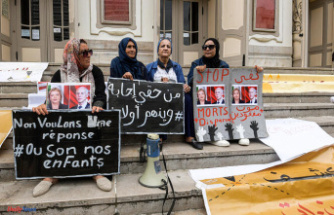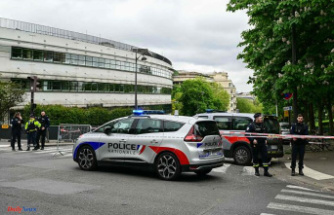You, father or mother, leaves your place of origin - a Caribbean country - looking for work, reaches its new European destination, schools for their children with the intention of having a more prosperous life than its and without greater Explanation end up in a center for people with disabilities. That was the process that lived hundreds of families arrived in the United Kingdom, especially from Jamaica or the Antilles, in 60 and 70.
Many of those children were rated as "educational subnormals", a term that the British Educational Law began introducing in 1945, and that was used to send to black minors to special education centers in the northern and southeast areas of London and in the Midlands. Thus it was avoided that elementary schools were "full of immigrants".
The textual statement comes from Peter Davies, spokesman for Birmingham's National Teacher Union, which in a public statement through television detailed the pattern that should be followed: "We must disperse them because the alternative to this is that we have a growing number of Schools with almost 100% immigrants ".
This was how in 1965, eleven English local administrations began to take these black students to schools that were more than one hour from their homes and that they were mostly from special education by bus routes. That periplo is the one that collects Steve McQueen in his subnormal documentary: racism at school, produced by BBC and available in Movistar +. In it, testimonies like that of Maisie Barrett or Noel Gordon, two of those minors appear.
"Then I did not go to high school for the intimidation of not having friends and not being able to read," says Camera Gordon, today with a postgraduate degree in Education, after its passage through a Special Education School. Something constant because, according to a study, only in London, in 1967, there were 28% of immigrants against 15% of basic schools.
The Department of Education of the Government of the Kingdom had set a few years before the maximum of foreign students per class out of 30% and, in 1968, a report from Haringey City Council, north of London, assured that the intellectual quotient of these students It was "well below its English contemporaries." The perfect combination to send those students to special centers.
For this, the British education system during those years conducted intelligence tests, a practice that began to develop after the Second World War, which threw that while the intellectual average was between 90 and 110 points, the Caribbean children were around 76 , well below the average.
Even the psychologist Hans Eysenck came to cite an American study that stressed that the IQ of the blacks was 12 points below the average of whites. "This is justified by practice, a reasoning similar to that of slavery," explains the activist for the civil rights of blacks and academics, Gus John.
But what was the real reason for these children to have such low indexes in the intelligence tests? His little language mastery, the culture other than that came, the environment in which they lived ... As an example, in the documentary, the psychologist Mollie Hunte, already deceased, explains that many Caribbean children were unable to identify a faucet no For a lower intellectual index but because the use of the word was different.
In fact, these tests worked perfectly with minors from other races, such as those from India, mainly because they already had a proficiency in English that was their second language against Jamaicans or Antilleans, who did not know in depth the use of English . That also caused that its adaptation to the British ecosystem was more complicated, are not related to the rest and showed situations of indiscipline, another of the criteria for mobility in educational centers.
However, the arrival of black activists in the 1970s, the appearance of collectives of parents and the publication of the book how the Antillean child becomes subnormal from the educational point of view in the British School System, Debernard Coard, began to Remove these practices into public light.
In it, the Writer and Master Granada aims towards "a growing tendency" of black children in special schools "above average", which turned these centers into "landfills" for immigrants. That, added to the pressure of the families, who began distributing the book among their compatriots to sell it caused the British government to begin to rethink the situation.
These families were gateway through the neighborhoods where Caribbean immigrants lived in cities such as London, Manchester or Birmingham to denounce the situation suffered by their children and who, as they understood, discriminated against their children and gave them the opportunity to progress socially in the British society
This increased pressure and the passage of the years forced the British Executive to commission an Ethics Committee to study the situation and in 1981, with the change of the Education Act, the term "educational subnormal" was excluded to qualify the students. In 1985, the final report decreed that the transfer of Caribbean minors to special colleges was due to "racial prejudices" and that they did not have an intellectual coefficient lower than their British companions.
Date Of Update: 03 October 2021, 02:16











